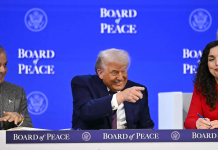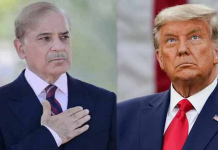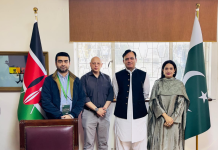Pakistan’s apprehensions about India’s role in Afghanistan are not new. These concerns persisted even after the fall of the first Taliban regime in November 2001, when India became active in Afghanistan’s development, education, and health sectors
Comment
Shamim Shahid
The tensions that have once again strained relations between Pakistan and Afghanistan are the outcome of years of mistrust, miscommunication, and misplaced fears. The concerns that brought both countries to this tragic point are neither entirely imagined nor entirely real — rather, they have been shaped by exaggeration, political manipulation, and decades of suspicion.
Both Islamabad and Kabul have repeatedly accused each other of harboring anti-state elements, while even genuine diplomatic gestures are often misread as threats. Instead of cooling tempers, the media — both mainstream and social — have at times inflamed hostilities, amplifying unverified claims and promoting narratives that deepen divides between the two neighboring Islamic countries.
A particular mindset within Pakistan has long justified aggressive postures toward Afghanistan on the grounds of Kabul’s growing diplomatic engagement with India. This deep-rooted anxiety, dating back to the early years of Pakistan’s formation, still reflects a psychological insecurity rather than a rational assessment of regional dynamics.
Pakistan’s apprehensions about India’s role in Afghanistan are not new. These concerns persisted even after the fall of the first Taliban regime in November 2001, when India became active in Afghanistan’s development, education, and health sectors. During the governments of President Hamid Karzai and Dr. Ashraf Ghani, Pakistani officials and sections of the media repeatedly questioned the nature of Afghan-Indian relations. Yet both Afghan leaders consistently reassured Pakistan that India was not a replacement for its western neighbor.
Karzai, during a press interaction at Serena Hotel Islamabad, famously remarked: “We are one body with two hearts. No one could replace Pakistan in Afghanistan. A majority of Afghans still consider Pakistan their second home.” Dr. Ashraf Ghani, too, maintained a similar stance, emphasizing Afghanistan’s natural bond with Pakistan.
However, the greater failure lies not only in political missteps but also in the silence of those who should have spoken up. Media institutions, civil society, and intellectuals — instead of questioning flawed policies — often echoed official narratives. This silence enabled rulers on both sides to sustain politics built on fear, not cooperation.
Following the return of the Taliban (Emirate Islami) to power in Kabul, an alarming pattern of suppression of dissent has emerged. Voices of reason, dialogue, and moderation have been silenced under the pretext of maintaining order. Ironically, restrictions on media freedom, expression, and civic activism are not limited to Afghanistan; similar constraints have increasingly appeared in Pakistan.
This shared repression has made it nearly impossible for public opinion makers to build bridges or create space for meaningful dialogue. When journalists, analysts, and human rights defenders are silenced, societies are left at the mercy of propaganda and populism. The governments of both countries must immediately remove all restrictions on media and civil society. Freedom of expression and open dialogue are the first steps toward rebuilding trust.
The time has come for Pakistan and Afghanistan to rewrite their shared story — not through proxy wars, border skirmishes, or diplomatic deceit, but through mutual respect, understanding, and courage. Both nations share deep cultural, religious, and historical ties that cannot be erased by politics or propaganda.
The old doctrines of suspicion and strategic depth have long outlived their purpose. In today’s world, where former foes have turned into trade partners, hostility only isolates nations from progress. The real enemies confronting both Pakistan and Afghanistan are poverty, unemployment, illiteracy, and extremism — not each other.
Instead of diverting public attention through conflict-driven narratives, the rulers of both countries must recognize their core responsibility: ensuring that their citizens can live with dignity and economic security. A stable, peaceful, and cooperative Pakistan-Afghanistan relationship is not only vital for their own peoples but also for regional peace and prosperity.
The media, civil society, and public opinion makers on both sides must reclaim their role — not as echo chambers of state narratives, but as bridges of understanding. Peace will not be achieved by governments alone; it will emerge when ordinary people, journalists, scholars, and community leaders begin to see across the border not an enemy, but a neighbor in need of friendship.

















